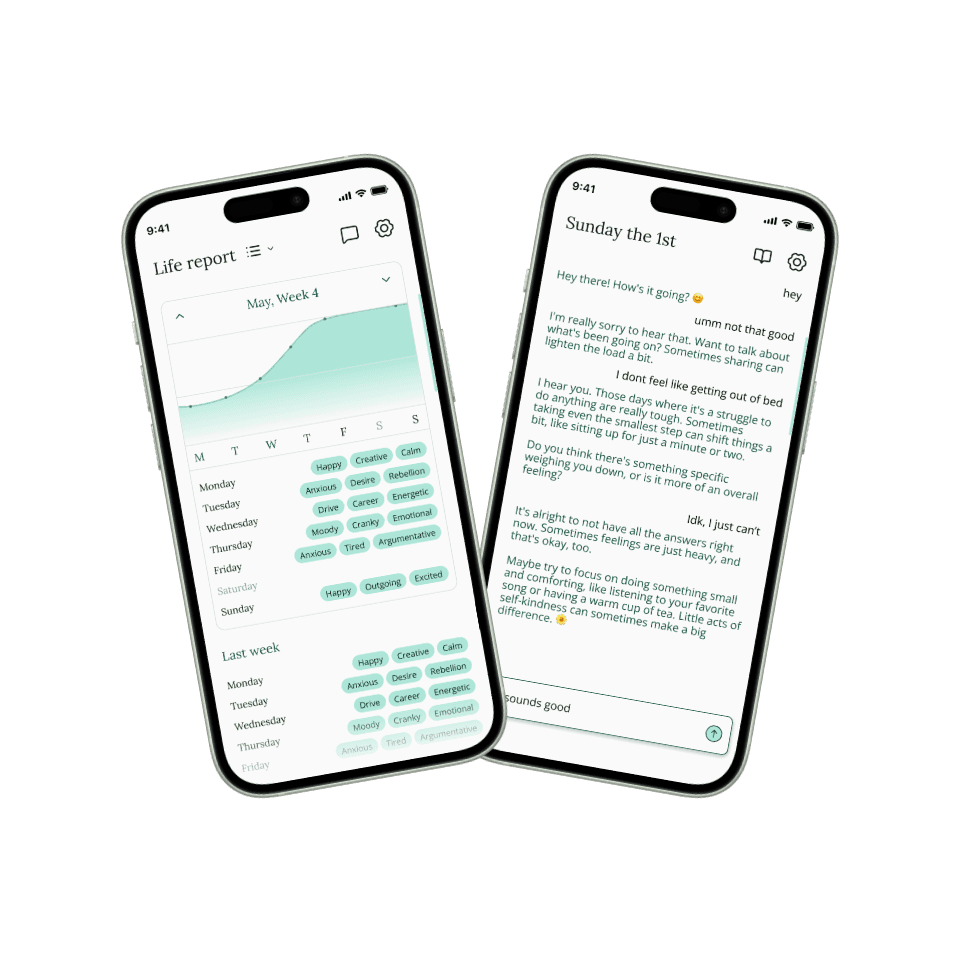
How to Find the Right Therapist: 4 Essential Steps
How to Find the Right Therapist: 4 Essential Steps
Sep 7, 2024
Sep 7, 2024
Finding the right therapist can take time and effort, but the payoff of connecting with a therapist who understands and supports you is immeasurable. Let's break down the process into four manageable steps to help you find the right therapist for your needs.
1. Identify Your Needs and Preferences
Before you start your search to find the right therapist, take some time to reflect on what you're looking for:
What specific issues are you hoping to address? Anxiety, depression, relationship problems, or something else?
Do you have any preferences regarding your therapist's characteristics? This might include gender, age, or cultural background.
What are your therapy goals? Are you looking to manage symptoms, work through trauma, or gain general life insights?
Understanding your needs will make it much easier to find the right therapist. It gives you a clear starting point and helps you focus your search.
2. Research Therapists and Their Approaches
Now that you know what you're looking for, it's time to dive into your search to find the right therapist:
Check credentials: Ensure potential therapists are licensed professionals in your state.
Look into specialties: If you're dealing with a specific issue, a therapist who specializes in that area might be particularly helpful.
Understand different therapy styles: Common approaches include Cognitive Behavioral Therapy (CBT), psychodynamic therapy, and humanistic therapy. A quick online search can help you understand which might resonate with you.
Use therapist directories, ask for recommendations from trusted sources, or check with your insurance provider to find potential matches. Remember, finding the right therapist is about finding someone who fits your specific needs and situation.
3. Reach Out and Have Initial Consultations
Many therapists offer brief initial consultations. These can be invaluable in your quest to find the right therapist:
Prepare questions to ask during these consultations. How would they approach your specific issues?
Pay attention to how you feel during the conversation. Do you feel heard and understood?
Discuss practical matters like fees, scheduling, and policies.
Don't hesitate to be thorough in your questions. A good therapist will appreciate your commitment to finding the right fit.
4. Evaluate and Be Open to Adjustment
After your initial meeting, take some time to reflect on the experience:
How did you feel during and after the consultation? Comfortable? Heard? Understood?
Did the therapist's approach and personality seem like a good fit for you?
Could you imagine opening up to this person over time?
Keep in mind that it's okay if you don't find the right therapist immediately. It can take a few sessions to know if it's a good fit, and if it's not, it's perfectly acceptable to look elsewhere. The goal is to find the right therapist for you, which might take some time.
Conclusion
Finding the right therapist is a personal journey that requires patience and self-reflection. By following these steps and staying true to your needs and feelings, you'll be well on your way to finding a therapist who can effectively support you on your mental health journey.
Remember, the process of finding the right therapist is an investment in your well-being. It's okay to take your time and be selective. Your mental health is important, and finding the right therapist can make a significant difference in your progress and overall well-being. Trust the process, and don't give up – the right therapist for you is out there.
Finding the right therapist can take time and effort, but the payoff of connecting with a therapist who understands and supports you is immeasurable. Let's break down the process into four manageable steps to help you find the right therapist for your needs.
1. Identify Your Needs and Preferences
Before you start your search to find the right therapist, take some time to reflect on what you're looking for:
What specific issues are you hoping to address? Anxiety, depression, relationship problems, or something else?
Do you have any preferences regarding your therapist's characteristics? This might include gender, age, or cultural background.
What are your therapy goals? Are you looking to manage symptoms, work through trauma, or gain general life insights?
Understanding your needs will make it much easier to find the right therapist. It gives you a clear starting point and helps you focus your search.
2. Research Therapists and Their Approaches
Now that you know what you're looking for, it's time to dive into your search to find the right therapist:
Check credentials: Ensure potential therapists are licensed professionals in your state.
Look into specialties: If you're dealing with a specific issue, a therapist who specializes in that area might be particularly helpful.
Understand different therapy styles: Common approaches include Cognitive Behavioral Therapy (CBT), psychodynamic therapy, and humanistic therapy. A quick online search can help you understand which might resonate with you.
Use therapist directories, ask for recommendations from trusted sources, or check with your insurance provider to find potential matches. Remember, finding the right therapist is about finding someone who fits your specific needs and situation.
3. Reach Out and Have Initial Consultations
Many therapists offer brief initial consultations. These can be invaluable in your quest to find the right therapist:
Prepare questions to ask during these consultations. How would they approach your specific issues?
Pay attention to how you feel during the conversation. Do you feel heard and understood?
Discuss practical matters like fees, scheduling, and policies.
Don't hesitate to be thorough in your questions. A good therapist will appreciate your commitment to finding the right fit.
4. Evaluate and Be Open to Adjustment
After your initial meeting, take some time to reflect on the experience:
How did you feel during and after the consultation? Comfortable? Heard? Understood?
Did the therapist's approach and personality seem like a good fit for you?
Could you imagine opening up to this person over time?
Keep in mind that it's okay if you don't find the right therapist immediately. It can take a few sessions to know if it's a good fit, and if it's not, it's perfectly acceptable to look elsewhere. The goal is to find the right therapist for you, which might take some time.
Conclusion
Finding the right therapist is a personal journey that requires patience and self-reflection. By following these steps and staying true to your needs and feelings, you'll be well on your way to finding a therapist who can effectively support you on your mental health journey.
Remember, the process of finding the right therapist is an investment in your well-being. It's okay to take your time and be selective. Your mental health is important, and finding the right therapist can make a significant difference in your progress and overall well-being. Trust the process, and don't give up – the right therapist for you is out there.
View more insightful blog articles
Today's tune



Track your mental health and get support between sessions with Verba
Learn more

Track your mental health and get support between sessions with Verba
Learn more

Track your mental health and get support between sessions with Verba
Learn more

Advait Naik
Advait is the founder of Verba and is working at the intersection of psychology, design and technology to create Verba, an app that helps us be more self aware through clarity and communicate our life in therapy